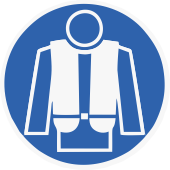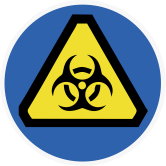Turn on Javascript


This website uses Javascript


Turn on Javascript
This website uses Javascript
Hello. Is the website looking too large? Click on the button below to make it a better size
When the new window is open, you can close this window
You are in trouble in the water?


You find barrels washed up?
Do not touch. If they appear to have something in them (or you are unsure if this is the case) please call the Coastguard on 999 it may be helpful to use the phrase "potential threat to health".
If it is obvious that they are empty, please call Cornwall Council Environmental Management on 0300 1234 202 (even if it is out of hours, arrangements can be made for collection).
You see a stranded: dolphin / porpoise / whale / shark (cetaceans) or seal?
If alive, avoid getting too close, call Cornwall Wildlife Trust Strandings Network Helpline on 0345 201 2626 as soon as you possibly can, speed is of the essence! The co-ordinator will arrange for experts to attend its rescue.
If dead, call the same number 0345 201 2626 where the co-ordinator will arrange for one of the many trained recorders around the county to come and record the animal, photograph it and arrange for disposal as appropriate. If not too badly decomposed it may go for a post-mortem to try to establish what happened.
Cornwall Wildlife Trust Strandings Network - http://www.cornwallwildlifetrust.org.uk/what-we-do/our-conservation-work/at-sea/marine-strandings-network


You see a jellyfish?
We can get compass jellyfish at Par Beach and these have a powerful sting even when washed up:
Never touch jellyfish with bare hands.
Always use a stick or wear arm length rubber gloves if you need to turn them over for identification.
Beware of the stinging tentacles and keep your face and any exposed skin well clear.
Seek medical attention in the case of a severe sting (if you have difficulty breathing, chest pains or a large or sensitive area of the body has been stung).
If someone has been stung by a jellyfish, remove any remaining tentacles with tweezers or a clean stick (wear gloves if they are available). The affected area should be soaked in vinegar for between 15 to 30 minutes to prevent further toxins from being released. If vinegar is not available, rinse the area with alcohol or seawater (not fresh cold or hot water). Do NOT rub the area OR apply ice. You should also ignore any advice that you may have heard about using urine because it is unlikely to help and in most cases it may make the situation worse. Apply shaving cream to the affected area and use a razor blade or credit card to remove any nematocysts (small poisonous sacs) that are stuck to the skin. Aftercare - after a jellyfish sting, any pain and swelling can be treated with painkillers, such as paracetamol and ibuprofen.
If however you have been stung by a Portuguese man-of-war, the treatment is similar to a jellyfish sting (see above). However, don't use vinegar or alcohol to wash the affected area because it can make the pain worse (unlike with jellyfish stings). The pain caused by most Portuguese man-of-war stings will disappear within 15 to 20 minutes, but find immediate medical attention if the pain is still there after an hour or if the area becomes infected.
You see a bat on the ground or in trouble
If you notice a bat on the ground or exposed on a wall or fence during daylight hours, please report it immediately to the National Bat Helpline on 0845 1300 228. Bats do not ‘sun themselves’ and grounded bats need immediate protection from predators and urgent care to nurse them back to health. Please make sure you do not touch the bat without wearing gloves. For more information on what to do if you Need Help with a bat please visit this webpage: https://www.bats.org.uk.
You see an injured animal/bird
Call the RSPCA on 0300 1234 999. Do NOT try to free an animal/bird tangled in fishing line yourself as you may cause more harm.
If you find an oiled bird and it is safe to pick it up, make sure you're wearing gloves, box it in a ventilated cardboard box lined with paper/a towel to keep it contained and quiet and either take it to a vet, or call RSPCA on 0300 1234 999.


You find a flare/pyrotechnic on the beach
Do not touch – a simple parachute flare can cause a 10ft crater! Please call 999 and request the Coastguard, who will act on the information given. The area needs to be marked in some way and if possible for someone responsible to stay nearby to keep people away and to hand control of it over.
You see pollution or find dead fish
Call the Environment Agency incident hotline on 0800 80 70 60.
You encounter anti-social behaviour
Anti-social behaviour covers a wide range of unacceptable activities. Cornwall Council have a Report It page for such matters as graffiti, dog fouling, fly tipping and illegal dumping. Read this information page: http://www.cornwall.gov.uk/fire-and-rescue-service/keeping-safe/community-safety/anti-social-behaviour-and-nuisance/
Police non-emergencies call 101 or use the online reporting form, for acts of vandalism or intimidating groups taking over public spaces. Remember, in an emergency, you should always call 999.
An emergency is: when a crime is in progress, when someone suspected of a crime is still there or nearby, or when someone is injured, being threatened, or in danger.

